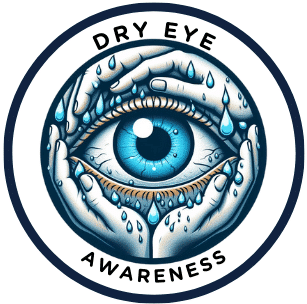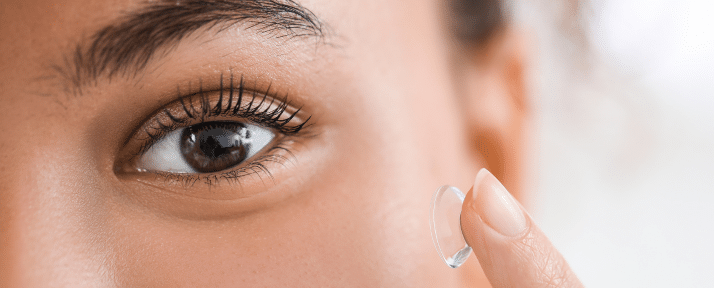
Dry Eye Syndrome (DES), affects many individuals worldwide. It’s a condition where your eyes don’t produce quality tears or enough tears, leading to inflammation and discomfort.
You may be experiencing symptoms like irritation, redness, a stinging or burning sensation, and even blurry vision. The idea that these could be more than just temporary annoyances might come as news to you. It’s a common misconception that such symptoms are merely a part of normal life, especially for contact lens users.
If you wear contact lenses, you might find these symptoms familiar, perhaps even just part of your routine. However, it’s important to understand that contact lenses can actually contribute to dry eye symptoms. Because lenses absorb moisture from the eye’s surface, they can exacerbate the feeling of dryness or initiate it.
Statistics show that a significant number of contact lens wearers report DES symptoms, and it’s crucial for wearers to stay informed. Addressing DES early can help you maintain both eye health and comfort.
Recognizing the signs of DES is the first step toward finding relief. In the next section, I’m going to guide you through selecting the best contact lenses for dry eyes, taking you closer to comfort and better eye health.
Choosing the Right Contact Lenses for Dry Eyes
If you experience dry eye symptoms, you must be careful about the type of contact lenses your eye doctor chooses for you. Comfort and eye health should always take precedence.
First, consider the lens material. Soft lenses, often made from hydrogel or silicone hydrogel, allow more oxygen to the eye and retain moisture better than others. Your eye doctor needs to ensure that the lens material is compatible with your eyes and minimizes any dryness.
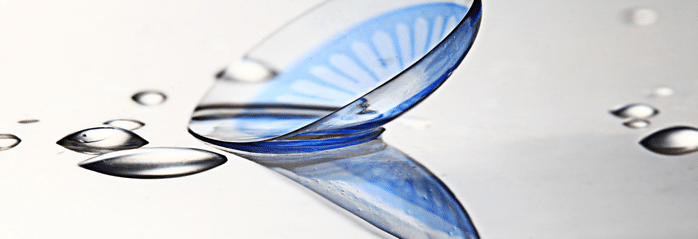
Next, examine the features of the lens. Some are specifically designed with dry eyes in mind, offering higher water content or moisture-retaining technologies. These can make a significant difference in comfort levels.
The lens care solution also plays a crucial role. Some solutions can help maintain proper lubrication of contact lenses, but others may contribute to dryness. Your eye doctor should recommend the best solution for your eyes.
Speaking of professionals, it’s essential to get advice from an optometrist or ophthalmologist before settling on a particular brand or type of lens. Their guidance can steer you towards the products that best suit your condition.
Daily Habits to Minimize Dry Eye Symptoms
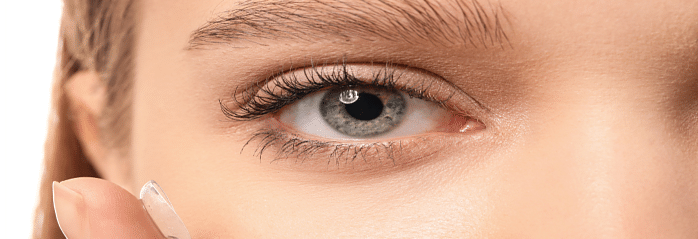
If you’re grappling with dry eyes while enjoying the convenience of contact lenses, small daily changes can make a big difference. Keeping your eyes comfortable is about more than just the type of contacts you wear – it’s also about the care and habits surrounding your lens use.
Hygiene is paramount. Wash your hands before handling your lenses to prevent irritation and infection. Make sure your contact lenses and storage case are regularly cleaned and replaced according to the manufacturer’s guidelines or your eye care professional’s recommendations.
Staying hydrated is crucial for maintaining sufficient moisture in your eyes. Drink plenty of water throughout the day. If you’re in an arid environment or staring at a screen for long hours, remember to blink regularly to stimulate tear production and consider using a humidifier.
Taking breaks is essential, particularly for those of you spending considerable time on digital devices. Adopt the 20-20-20 rule: every 20 minutes, gaze at something 20 feet away for at least 20 seconds. This can help alleviate eye strain and encourage natural eye lubrication.
Finally, re-evaluating your diet may contribute to healthier eyes. Omega-3 fatty acids are known to support eye health. Examples of foods that contain these fatty acids are fish and flax seeds. Integrating these into your diet, along with a balance of vitamins and minerals, can promote overall well-being, including that of your eyes.
Medical Interventions and Alternative Options for DES Sufferers
If you’ve tried improving daily habits and still struggle with Dry Eye Syndrome (DES), it’s essential to know when to seek professional help. Persistent dry eye discomfort isn’t something to ignore, because it can lead to more complications if left untreated. Your eye doctor can provide a thorough examination and may recommend prescription treatments such as eye drops or anti-inflammatory medications, tailored to your unique situation.
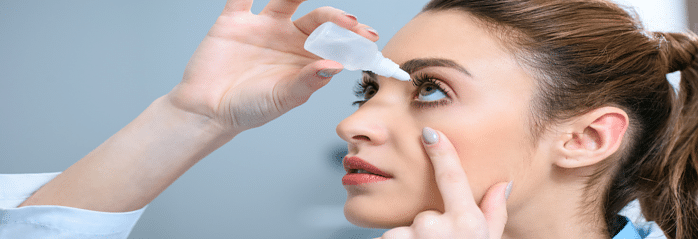
Besides medical prescriptions, there are over-the-counter options like artificial tears or contact lens rewetting lubricating eye drops that can offer temporary relief. These can be used in conjunction with lifestyle changes such as modifying your work environment to reduce eye strain or using a humidifier to add moisture to the air.
Home remedies can also play a role in managing symptoms. Warm compresses and eyelid massages can stimulate the glands that produce oil for the eyes, which is critical in maintaining a healthy tear film. Also, drink plenty of water and incorporate omega-3 fatty acids into your diet, and that will keep you properly hydrated and have a positive impact on your eyes.
For those whose quality of life is significantly affected, minor procedures such as puntal plugs may be considered. Meanwhile, others might find relief by simply switching to glasses, at least part-time, to give their eyes a break from contact lenses. Remember, the key here is to discuss all available options with a healthcare professional who understands your history and can guide you toward the best course of action for your eye health.
